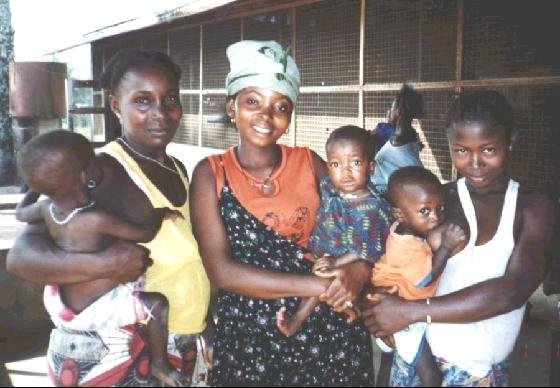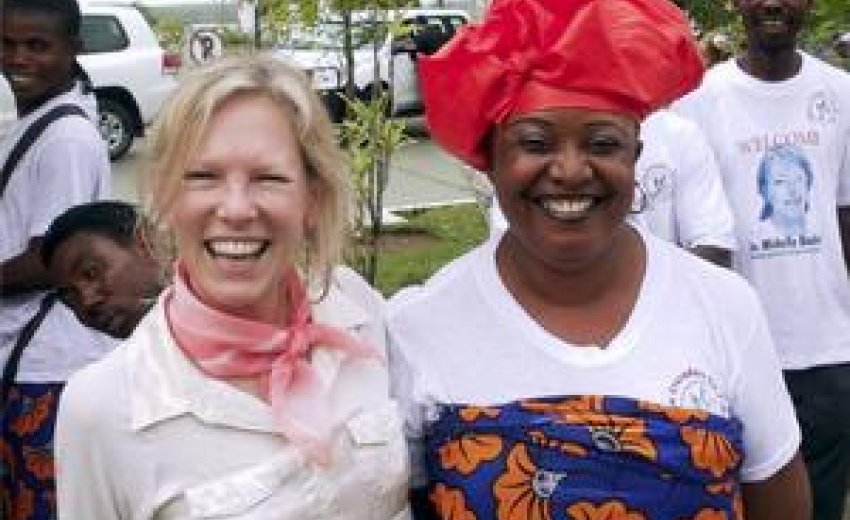Each Mothers' Day, I rush out to buy a gift for my mother to show her my appreciation for everything she does and to help make things easier for her. In past years, I have bought her yoga and meditation DVDs for relaxation, cutting boards to help with cooking, and a GPS so she doesn't get lost when driving on vacation. As a mother myself, I know that often simple tools can be a great help in our everyday lives.
 In my travels for the United Nations Foundation, I meet women -- mothers
like me -- in developing countries who need access to tools to help
their lives. I am reminded of stories like the young woman from Uganda
who, after delivering her ninth child, was told by the midwife that she
should not carry any more children. She searched for contraceptives to
prevent pregnancy, but could not find any available in or around her
village. Four months later, she became pregnant with her tenth child.
She and her baby died, leaving nine children impoverished and
motherless.
In my travels for the United Nations Foundation, I meet women -- mothers
like me -- in developing countries who need access to tools to help
their lives. I am reminded of stories like the young woman from Uganda
who, after delivering her ninth child, was told by the midwife that she
should not carry any more children. She searched for contraceptives to
prevent pregnancy, but could not find any available in or around her
village. Four months later, she became pregnant with her tenth child.
She and her baby died, leaving nine children impoverished and
motherless.
Tragic stories like these are all too common in developing countries, where approximately 1,000 women die in childbirth every day. Many of these deaths could have been prevented through a simple and cost-effective solution: access to voluntary contraception. Currently, 215 million women around the world want to prevent pregnancy, but don't have access to the quality contraceptives that would make this possible.
If this need for voluntary family planning were met, maternal mortality would be reduced by one-third. Simultaneously, infant mortality would be reduced by 10 to 20 percent. According to the Guttmacher Institute, if the need for both family planning and pregnancy-related health services were met, 1.7 million babies per year would be saved. In fact, using family planning to space children by 36 months instead of 18 months doubles a child's chance of survival.
It is no coincidence that the countries with the highest rates of child mortality, mostly in the Middle East, Southeast Asia, or sub-Saharan Africa, also have some of the lowest rates of contraceptive prevalence. According to the Council on Foreign Relations, Afghanistan, which has had the highest under-five mortality rate in the world for the past twenty years, has a contraceptive prevalence of only 10 percent. In sub-Saharan Africa, where 22 percent of the world's children are born yet 49 percent of under-five deaths occur, contraceptive prevalence is only 17 percent.
The evidence is clear that access to contraception is critical to reducing poverty, boosting economic growth and productivity, promoting environmental sustainability, and raising healthy and well-educated children -- all steps that are imperative to confronting a range of pressing foreign policy challenges around the globe. It has an amplifying effect -- when a woman is healthy, she can build a stronger family, which leads to more sustainable communities, and a better world for generations to come.
Despite myriad benefits of contraception, lawmakers have failed to prioritize funding of access to voluntary contraception.
If the status quo continues, tragedies like the woman and her family in Uganda will continue to happen every day. There is a growing recognition of women as catalysts of change and that investments in their future strengthens communities. The U.K. government and the Bill and Melinda Gates Foundation have recognized this opportunity by organizing the London Summit on Family Planning in July. The time to act is now. This Mother's Day, let's urge policymakers to think about these families, and put voluntary family planning at the top of the global development agenda. Let us know your thoughts on the U.N. Foundation's Facebook or Twitter.
